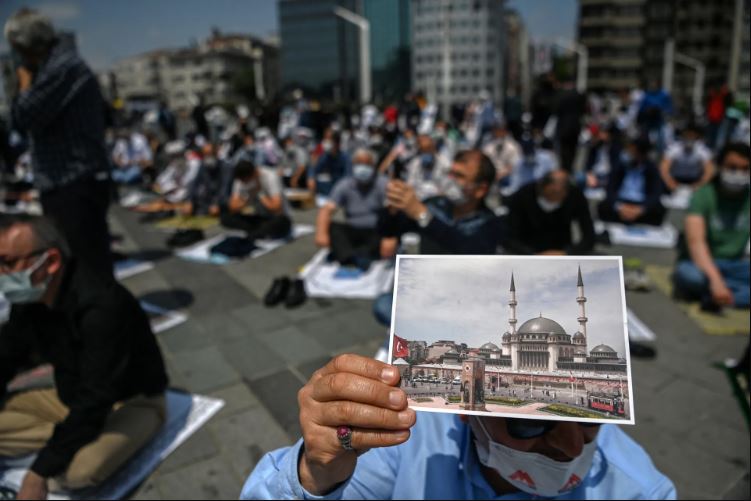Twelve recognised Diyanet mosques in Flanders, associated with the Turkish Ministry of Religious Affairs, must remain free of influence from Turkey if they wish to maintain their recognition, announced Flemish Minister for Coexistence Bart Somers.
After a year-long stop in granting official recognition to new mosques, a new decree is making it possible again under certain conditions, such as a ban on foreign interference and financing. The new decree also ensures that Diyanet-affiliated mosques must thoroughly change their operation if they want to retain their Flemish recognition.
"Flemish Muslims are part of Flanders and full citizens in our society. It is therefore important that we restore trust and start recognising Islamic religious communities again," Somers said in a press release. "But many Flemish Muslims have no need for Turkish state imams."
"We cannot accept that religion is instrumentalised to serve foreign interests," he added. "We say loud and clear: mosques that want to keep their recognition, have to keep out foreign influence."
Under the influence of the Turkish Government
A newly established Flemish Information and Screening Service must monitor compliance with the recognition conditions and support local religious communities in this regard. Now, Somers also gave the Service the task of informing the 12 recognised Diyanet mosques about the need to keep out those foreign influences.
The 23 mosques associated with Diyanet that are eligible to be recognised within the year will also have to make this switch if they want to receive their recognition, he stressed.
"The information and screening service monitors and supports all local faith communities, but as Flanders has more than 1,700, it is only logical that we prioritise," Somers said. "We know that some mosques are structurally under the influence of the Turkish Government."
Related News
- Over 75 mosques not recognised as Muslim Executive 'does not cooperate'
- Jehovah's Witnesses in Brussels receive €5,000 compensation for discrimination
- Belgium revokes recognition and funding of Muslim Executive
Those mosques work with officials of the Turkish Government as imams, a large part of these local faith communities have given the ownership of their mosque building to Diyanet (making independent operation impossible), and there is often also foreign financing, Somers said. "Three things that are incompatible for decree if one wants to retain or obtain Flemish recognition."
Losing official recognition has far-reaching consequences: not only does the local religious community lose financial support from the higher government, an imam from abroad also does not receive a work and residence permit for an unrecognised mosque.
"It is time for mosques associated with Diyanet to make the change. Those who do can count on recognition," Somers said. "In the interest of our society and the Flemish Muslims who want to practice their faith without foreign influence."

